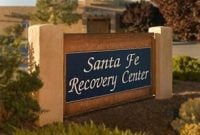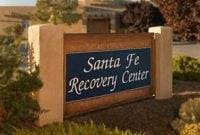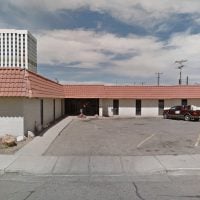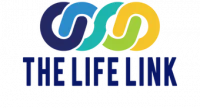Santa Clara Pueblo Behavioral Health
Drug Rehab Center in Espanola, New Mexico
- Opioid Addiction
- Dual Diagnosis
- Alcoholism
Santa Clara Pueblo Behavioral Health is a top-rated addiction and mental health treatment facility located in Espanola, New Mexico that provides evidence-based treatments such as cognitive behavior therapy and family therapy to individuals and families dealing with substance abuse and other mental health issues while being accredited by SAMHSA.
About This New Mexico Facility
Santa Clara Pueblo Behavioral Health is a top-rated addiction and mental health treatment facility located in Espanola, New Mexico. The facility strives to provide a supportive and healing atmosphere for individuals and families dealing with the devastation of substance abuse and other mental health issues. Santa Clara Pueblo Behavioral Health specializes in dual diagnosis, offering treatment for both substance abuse issues and mental health conditions simultaneously.
Santa Clara Pueblo Behavioral Health is staffed by a professional care team that aligns evidence-based treatment approaches, like cognitive behavior therapy and family therapy, to best suit the individual needs of patients. The facility offers a full range of treatment services, including residential long-term care, outpatient services, and intensive outpatient programs, to ensure each individual achieves the highest level of recovery. Santa Clara Pueblo Behavioral Health is accredited by SAMHSA, the Substance Abuse and Mental Health Services Administration, providing an assurance of quality and standards-based care.
Genders
Ages
Modality
Additional
Accreditations
SAMHSA
Conditions and Issues Treated
Many people who struggle with opioid addiction need to attend specific programs like methadone , Suboxone or Vivitrol clinics.
These types of programs will provide the patient with legal, prescription medications that can help them overcome their cravings for illegal opioids like heroin or fentanyl . If the patient has a chronic condition like Hepatitis C, they must undergo treatment before they can begin taking these medications.
Dual Diagnosis refers to someone who is both dealing with addiction and another mental health issue.
There are different kinds of Dual Diagnosis: A person who simultaneously experiences both a mental illness and an addiction disorder. Or, a person who experiences one or more coexisting (simultaneous) mental health conditions in addition to a primary substance use disorder.
Some conditions that commonly co-occur with addiction include:
- Personality Disorders (Borderline, Narcissistic)
- Mood Disorders (Bipolar Disorder, Depression, Anxiety Disorder)
- PTSD (Post Traumatic Stress Disorder), OCD (Obsessive Compulsive Disorder), ADHD (Attention Deficit Hyperactivity Disorder)
- Schizophrenia, Psychosis, Hallucinations, Delusions
Levels of Care Offered at Santa Clara Pueblo Behavioral Health
This center offers a variety of custom treatment tailored to individual recovery. Currently available are Dual-Diagnosis, Intensive Outpatient, Outpatient, with additional therapies available as listed below.
Outpatient addiction treatment is beneficial for people who are able to function well in their day-to-day lives. It is recommended for people who are not yet ready to end their relationships with friends or family members who might be encouraging drug and alcohol use.
Intensive outpatient treatment is beneficial for:
- People who are able to attend treatment more than 3 times per week.
- People who do not meet the criteria for inpatient treatment.
- People who are able to contribute to their own recovery outside of the treatment center.
- People who are motivated towards recovery.
- People who are able to overcome addiction on their own without the need for higher levels of care.
Outpatient treatment programs provide drug and alcohol addiction treatment through individual sessions with a counselor, group therapy, 12-step meetings, and other activities to help individuals gain sober living skills. Most programs are designed for those individuals who have completed a medically supervised detoxification program and provide opportunities for clients to begin the process of early recovery.
Outpatient programs also offer a level of medical support as needed and psychological backing through therapy. Clients are encouraged to live at home, though there may be some flexibility regarding this requirement based on the circumstances and needs of each patient.
Outpatient treatment is perhaps the most common type of dual diagnosis program available. It does not pose a significant financial burden on patients. However, it is essential to note that outpatient treatment does not provide the support and supervision given in residential programs. Some addicts may need this level of support to maintain their sobriety.
Therapies & Programs
Therapy sessions focused on the individual addict can provide much-needed guidance as they work toward overcoming their addiction. These types of sessions typically involve guidance from a therapist, who will help addicts identify and process their feelings and cravings.
During these sessions, addicts may develop plans for coping with the triggers that typically lead to relapse and learn how to avoid those triggers during their recovery process.
If you are looking for drug recovery, couples therapy can be a great option. This type of therapy can help rebuild trust and joy in relationships that may have been damaged by addiction. It can also help reduce the dysfunctional behavior in a relationship that may trigger addiction. A patient’s partner will be involved in the process. They can also benefit from therapy, especially if they are trying to live with an addict.
The main goal of family therapy for drug addiction is to create an environment where communication can occur without judgment, hostility, or blame that often occurs within a family.
Family therapy is a type of group problem-solving that aims to improve communication and relationships between the patient, their family, and sometimes friends. The therapist is with the family as they learn to communicate with each other differently, especially with the addict when s/he is using.
The family can learn to reduce their enabling behavior or rally together and support each other during tough times. The patient also learns how to deal with their addiction and maintain sobriety while interacting with the family.
Different types of addiction treatment services are available. Within this article, group therapy is of interest due to its high success rate compared to individual therapy. Group therapy settings are beneficial because they allow recovering addicts to build a strong support network.
Benefits of group therapy are:
- Reduces feelings of isolation
- Immediate access to social support in the form of fellow addicts in recovery
- Lowers risk of relapse
- Increases rate of sobriety
- Builds coping skills that can be applied to everyday life
Cognitive Behavioral Therapy (CBT) is used by drug treatment centers to help addicts comprehend the causes of their substance abuse and the consequences that follow. Through CBT, clients learn to recognize and avoid high-risk situations and cope with challenging situations when they arise.
CBT treatment often includes a combination of individual therapy, group therapy, lectures, and other activities. The treatment’s goal is to help addicts gain self-control and maintain abstinence from drugs and alcohol over the long term so that an addict can get sober and lead a more productive life.
CBT is particularly effective in helping people overcome their drug problems, especially people whose drug abuse is motivated by self-defeating beliefs and emotions.
Additional Details
Specifics, location, and helpful extra information.
Espanola, New Mexico 87532 Phone Number(505) 692-6315 Meta DetailsUpdated November 25, 2023
Staff Verified
Patient Reviews
There are no reviews yet. Be the first one to write one.
Espanola, New Mexico Addiction Information
New Mexico has been one of the leading states in the nation when it comes to drug and alcohol use, abuse, and addiction. Opioids are responsible for over 60% of all drug-related overdoses in New Mexico. Alcohol-related deaths in New Mexico are the highest in the nation and almost twice the national average since 2000.
The drug addiction problem in Espanola, New Mexico, is relatively bad. According to the statistics, about 9.5 percent of people in Espanola use illicit drugs, and about 5.8 percent of people misuse prescription drugs. Heroin is the most commonly reported primary drug among treatment admissions in the area, followed by methamphetamine. There are many top-rated drug and alcohol treatment centers in the city that can help you overcome addiction.
Treatment in Nearby Cities
- Jemez Pueblo, NM (43.5 mi.)
- San Juan Pueblo, NM (5.8 mi.)
- Pena Blanca, NM (31.0 mi.)
- Las Cruces, NM (255.4 mi.)
- Canon, NM (42.3 mi.)
Centers near Santa Clara Pueblo Behavioral Health




The facility name, logo and brand are the property and registered trademarks of Santa Clara Pueblo Behavioral Health, and are being used for identification and informational purposes only. Use of these names, logos and brands shall not imply endorsement. RehabNow.org is not affiliated with or sponsored by Santa Clara Pueblo Behavioral Health.




